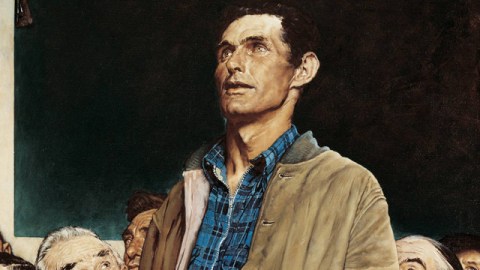Welcome to the Age of Engagement

Revolutions in communication technology and digital media have transformed almost every sector of society, altering the way we express ideas, participate in public debates, connect with others, entertain ourselves, and define our identities. As we struggle to keep up with these changes, differing stories have emerged about the implications of the digital age and our place in this revolution as citizens and consumers.
One one hand, cyber-optimists such as Clay Shirky have heralded the unprecedented opportunity for the public to up-end political power, organize to solve problems, express themselves through independently produced media, and gain control over the decisions of corporations.
On the other hand, cyber-pessimists such as Nicholas Carr worry that the many choices of the digital age distract us from public affairs and personal relationships, eroding our ability to engage with big ideas, altering even the way we think and process information. The overall trend, argue cyber-pessimists, is toward greater political control by elites and influence by corporations. And though there are new opportunities for independent media and voices, traditional entertainment companies and professional news gatherers still dominate what we read, watch, discuss, and think about.
Do we live in an Age of Engagement and participation or an Age of Distraction and control? The truth lies somewhere in between and is the focus of this new blog launching today at Big Think.
Join me in a discussion and journey as we examine how we learn, participate, connect, consume, and entertain ourselves.
I will be approaching these topics from my perspective as a social scientist, drawing upon studies, research, theories, and debates from among scholars, public intellectuals, and leading professionals. At Age of Engagement, you will encounter not only my thoughts and ideas but also the voices and arguments of my colleagues from the fields of communication, journalism, political science, sociology, and other social science disciplines.
I will also be introducing you to the discussions and debates that occur with students in the courses I teach as a professor in the School of Communication at American University. These courses examine the many intersections among communication and society, spotlighting the strategic challenges and ethical choices that confront professionals working in journalism, advertising, public relations, business strategy, government, advocacy, and politics.
Most importantly, as readers and commenters, you will be sharing your own thoughts, innovations, and conclusions, challenging my ideas and those of others, bringing to light innovations, proposals, and initiatives.
Readers from my old blog home at Framing Science will continue to find a strong emphasis on research and initiatives related to the public understanding of science, technology, and the environment. There will also be a re-invigorated conversation about questions of faith and non-belief and the relationship between science and religion. Ongoing topics and questions include:
What explains societal inaction on climate change and other environmental problems? What strategies and initiatives are likely to engage the public and decision-makers?
In a world of ever growing demand for energy, how do we prepare society for the reality of diminishing oil supplies and the threat of major energy crisis?
As research moves forward in areas such as personal genomics, neuroscience, and nanotechnology, how can the public actively participate in decisions related to research applications, ethics, governance, privacy, and ownership?
What is the role of popular film, television, and fiction in how the public understands and perceives science, technology, and medicine?
How do media and culture intersect with America’s culinary and dietary obsessions—from fast food to organic? And can media be used to support a healthy, sustainable food culture?
What is the future of atheism and religious non-belief? How have blogs and social media both hurt and helped the movement? Is it possible to be critical of religion while also respectful? Can and should atheists work with the religious on shared problems?
Readers will also encounter ideas and arguments at the center of current debate in the areas of media, entertainment, and public life:
How are political campaigns changing? Do average citizens have more influence over elections and the policy decisions of those elected? Are young people the difference makers in future elections or are they ever more disengaged?
In debates over heath care, economic recovery, and foreign policy, what new trends and strategies are being used to win support and influence outcomes?
How are new and old models of journalism shaping civic participation, collective problem-solving, cultural identity, and economic revitalization in cities, towns, and regions?
What strategies and models exist for enhancing civil discourse online, for promoting learning, and for establishing diverse forums rather than like-minded echo chambers?
How are social networks such as Facebook changing the way we define ourselves, manage relationships, and communicate? Have social networks enhanced or hurt community?
In what ways have the revolutions in digital and social media changed the movie industry, movie marketing, film criticism, and how audiences relate to movies and stars?
What is the future of book publishing and how has digital and social media changed what people read and how books are marketed? Is there a future for the independent bookstore and their communities of readers?
What do readers think? What questions and issues do you want to explore at the Age of Engagement? Weigh in with your comments below. I will follow-up with a post highlighting your ideas.
Below in an interview with Big Think, I discuss more of the themes and questions I will be focusing on.





